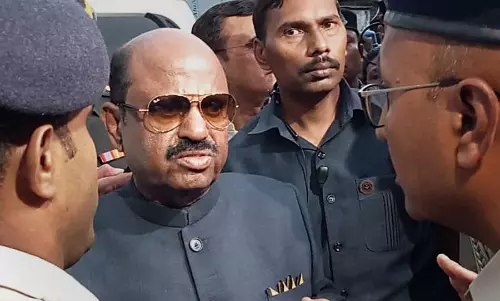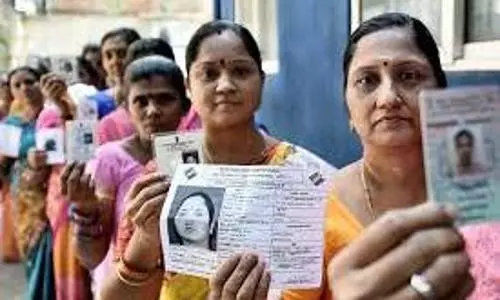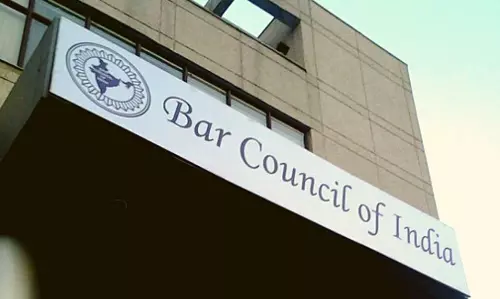
Legal binding of manifestoes
text_fieldsLok Sabha is a legislative body. The governments that come into being based on the numerical strength in it, are bound to enforce law. And they in turn are elected by the people in accordance with the constitution which is the foundation of all laws. However, that is not the case with promises made during elections which do not have any legal authenticity or binding nature. But this makes a mockery of the democratic machinery. What prevails today is a system in which parties and candidates make fancy promises, voters exercise their franchise putting trust in them and there ends their obligation towards voters.
Keeping the word given or not does not make any difference. There is no room for recalling those who break their word, and the vote once cast cannot be withdrawn; the concept that forms the cornerstone of rule of law, i.e. accountability, does not apply to manifestoes. The result is that elections, and thereby democracy, itself become a meaningless exercise. When we step into the next election, we recall the promises made by NDA government five years ago. And they include those that can never be implemented and those which were not even meant to be implemented. Thus people were rendered fools. An example is the promise of Modi that two crore jobs would be created every year, whereas during his term unemployment touched a record 7.2 per cent. Farmers before whom dreams were liberally dangled, found that agricultural income growth was the lowest in the past 14 years. Whatever promises were given on counts of environment, arresting price rise, social inequality and security, all turned out to be empty words. While breach of trust is culpable even in the small transactions of the common man, can it be that any number of promises can be made for forming a government? For, a promise that within 100 days every Indian will see an amount of Rs 15 lakh being credited to his bank account, can be offered only by those who themselves had decided that it was not meant for fulfilling!
But there are no legal means to stop such empty pledges. Supreme Court had observed during Balaji case in 2013 that promises made in manifestoes should be deemed liabilities of the respective parties, and there should be guiding principles in this respect. The body to bring out such directive principles is the Election Commission, but for some reason the Commission has not yet many move in that direction. This aspect has so far been mostly ignored, although the authenticity, credibility and validity of election exist on the strength of trust between candidates and the voters. Not only the Commission displayed pure inertia in it, but even the Supreme Court expressed helplessness in effect. In the public interest litigation filed by Advocate Mithilesh Kumar Pandey in 2015, it was pleaded that fulfilling the promises in manifestoes should be made legally binding on those who give them. The court cried off saying that there was no legal means to do that and it was upto the people's court to decide that. Thus a precious opportunity to give legal protection to the sanctity of election through an elightened interpretation of the constitution, was lost. Is it that there is no way for registering election manifestoes, to ensure that the promises contained in them are implemented in a timebound manner, and if not to provide for punishment or remedy?
In the current situation, the power of the voter, supposed to be the master of the government, is limited to casting his vote. And to influence his voting decision, parties and candiates can promise anything unachievable. They have understood that they do not really have any accountability to the people except in theory. When it turns out that there is no difference before law between those who give only such promises as can be delivered and work hard to achieve them, and those who give innumerable empty promises, win votes and go home, what meaning does this whole exercise carry? The Election Commission has to take certain steps at least this time. Let the candidates and parties register their manifestoes, and let them explain before an expert panel how they are going to implement them. And let the Commission publish an objective report every year showing to what extent each kept his word. Can at least a beginning be made with such a move this time?











